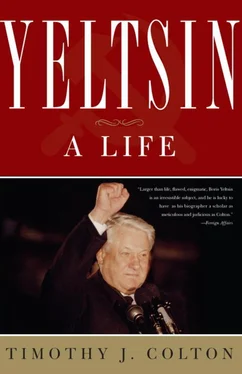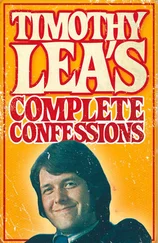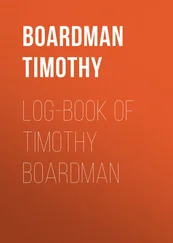The investigation and summary trial were a travesty, a paranoid era in microcosm. It is plain from Aleksei Litvin’s sleuthing, though, that the defendants had “an ill-concealed dissatisfaction with conditions at the construction site.” 57This provided the OGPU with ammunition for prosecution as a deterrent to their coworkers. The six, the formal indictment alleged, had underhandedly preyed on “the actual difficulties” with food and supplies at the factory. They grumbled about scarcity of their rationed provisions, soup made from rancid meat, a ban on solemnizing Orthodox Easter, and deductions from their pay packets for state bonds and to make donations to communists imprisoned in Austria. OGPU interrogators trolled for more political articulations, dragooning a laborer from Basmanovo, Sergei Kudrinskii, into testifying under oath to the Yeltsins’ kulak origins and to the twenty-two-year-old Andrian having said the people would be better off if a war broke out and the Soviet government was toppled. For Nikolai Yeltsin, no such words were hit upon, although his and Klavdiya’s bedroom in the tumbledown Barracks No. 8 was where the most inculpating conversations were said to have taken place. The canard that most occupied the inquisitors was offered by Maksim Otletayev, a Tatar carpenter, who gave information that Nikolai had prevented the workers from reading Soviet newspapers out loud at the Aviastroi site. The dossier shows the presiding officer staging an in-person meeting between Nikolai and Otletayev and peppering Yeltsin with queries on this and other venial offenses:
INTERROGATOR: Did you tell Otletayev not to read the newspaper and that he would not find anything in it anyway, and then tear it away from him?
YELTSIN: To say that there was nothing in the newspaper—I did not say that. As far as ripping the newspaper out of Otletayev’s hands is concerned, I did that unintentionally.
INTERROGATOR: Did you say we do not need to help workers who are rotting in prisons in capitalist countries?
YELTSIN: I don’t exactly remember. But I guess I said that because I am a simpleton.
INTERROGATOR: And with respect to the dining arrangements, [did you complain] when the dinner was bad?
YELTSIN: We discussed this in our crew when the food was lousy. 58
These equivocations and a steadfast denial of any lawbreaking, recorded in his signature on the indictment, were the best Nikolai Yeltsin could do in the OGPU snake pit. That he felt disaffection with the Soviet regime in 1934 is beyond question. It was anchored in the ravages of collectivization and forced-draft urbanization and in the lot of the Yeltsin and Starygin families. But it was his grousing about Aviastroi that got him into the police’s bad books. He faulted the newspaper readings mostly as a drag on productivity, as tallies with his crusty personality. 59He and his brother, unlike many Soviets in Stalin’s time, begged off collusion with the police. When the OGPU approached them, the reed they grabbed was the same artifice of peasant simple-mindedness that Nikolai had pleaded in his interrogation. The OGPU papers sent to the camp specified they were “not subject to recruitment” as stool pigeons and were to be watched with special vigilance. 60
Boris Yeltsin cried himself to sleep the night his father was taken into custody. He was too young to follow it but “could see my mother was sobbing and how petrified she was.” 61The two were imperiled when the Aviastroi barracks prepared to kick them out after Nikolai’s sentencing. A Good Samaritan—Vasilii Petrov, a sixty-year-old medical orderly and World War I veteran who was Nikolai’s cell mate as they awaited trial—took pity on them and asked his wife, Yelizaveta, and young daughter, Nina, to help out. Help they did. They came upon mother and child crouched in the hallway, locked out of their room, and gave them sanctuary in the Petrov cottage on Sixth Union Street. Klavdiya Vasil’evna would scrape by, working as a seamstress at a Kazan garment factory, where she learned to read and write in an evening class, and as a baker’s helper at Bread Factory No. 2. The boy, Nina said in the 1990s, was “skinny, calm, and obedient.” “When his mama would say to him, ‘I’m going to work, sit here quietly,’ he did not fuss…. The only toy he had was a doll. He wasn’t to touch it, only to look at it. But kids will be kids. Borya played with little pyramids he made out of pieces of wood. In the winter he and I loved to go on toboggan rides.” 62In 1936–37 Boris attended a kindergarten in Kazan, perhaps one attached to the bakery. 63
Nikolai Ignat’evich did his time at the Dmitrov camp on the Moscow-Volga Canal, the Suez-size dig to open up the capital to Volga water and shipping, which was the most pharaonic project in Stalin’s Gulag. The work, as a bearer and carpenter, was backbreaking and hellishly unsafe. Death rates among the canal’s almost 200,000 inmates were high. One in six was claimed by exposure, accidents, and disease in 1933 alone, so Nikolai’s chances of making it through three years were maybe fifty-fifty. 64He did make it, however, and was released seven months early. Aleksei Litvin is convinced there was an explicit deal for him to do post-Gulag work duty in Berezniki, and his discharge form from the Dmitrov camp did say he was bound for Berezniki. 65This, though, would not explain why Nikolai did not go there directly.
In October 1936 Nikolai Ignat’evich was restored to his wife and son at the Petrovs’ in Kazan. His registration papers said he was unemployed, that is, not formally signed up at a state workplace, in 1936–37. He must have found some work in the informal sector to put bread on the table. He may also have re-enrolled at the construction tekhnikum where he had taken classes before his arrest. 66Further reason to tarry in Kazan was Klavdiya’s pregnancy with their second child. Mikhail Yeltsin was born in July 1937. The six-year-old Boris was godfather at his christening. Right after, on July 31, the four pulled up stakes for Berezniki and the Urals, trundling their every possession in a wood laminate trunk. Vasilii Petrov was released from captivity and died in late 1937; his wife lived until 1966 and Nina until 2002. Klavdiya Yeltsina and the Petrovs corresponded and then lost track of one another during the war. As a mark of gratitude, Boris Yeltsin’s wife, Naina, bought Nina and her family a two-room apartment in Kazan in 1999, using Yeltsin’s book royalties; in 2006, on a visit to the city, she laid flowers on Nina’s grave. 67
The Yeltsins’ destination in 1937 was on the upper Kama River, some 400 miles northeast of Kazan (which is near where the Kama, flowing south, empties into the Volga) and 100 miles north of the major city of Perm. Berezniki lay over the proverbial Russian salt mines. First at the mouth of the small Zyryanka River on the left bank and later in the right-bank town of Usol’e, the Stroganovs, a monied merchant family from Novgorod, had begun in the sixteenth century to extricate unpurified sodium chloride out of the ground and refine it through desiccation and boiling. The saltworks went into decline in the eighteenth century, undersold by product from the Volga basin. In the nineteenth century, admixtures of calcium and magnesium chlorides were discovered in the local brine; these could be separated out through ammonia treatment and used as ingredients for fertilizers, industrial chemicals, and pharmaceuticals. The Belgian company Solvay and a Russian shipbuilder, Ivan Lyubimov, constructed a soda plant in the village of Churtan in 1883. Communist planners were taken with the area’s potential after 1917, and opened Russia’s first radium mill there in the 1920s. In the first five-year plan, they made it the epicenter of the Soviet chemical industry—a “republic of chemistry,” in a shibboleth of the day. The municipality of Berezniki was formed in March 1932 as an amalgamation of Churtan, the other four villages over the salt beds on the left bank of the Kama, and Usol’e, which was to be severed from it in 1940.
Читать дальше












